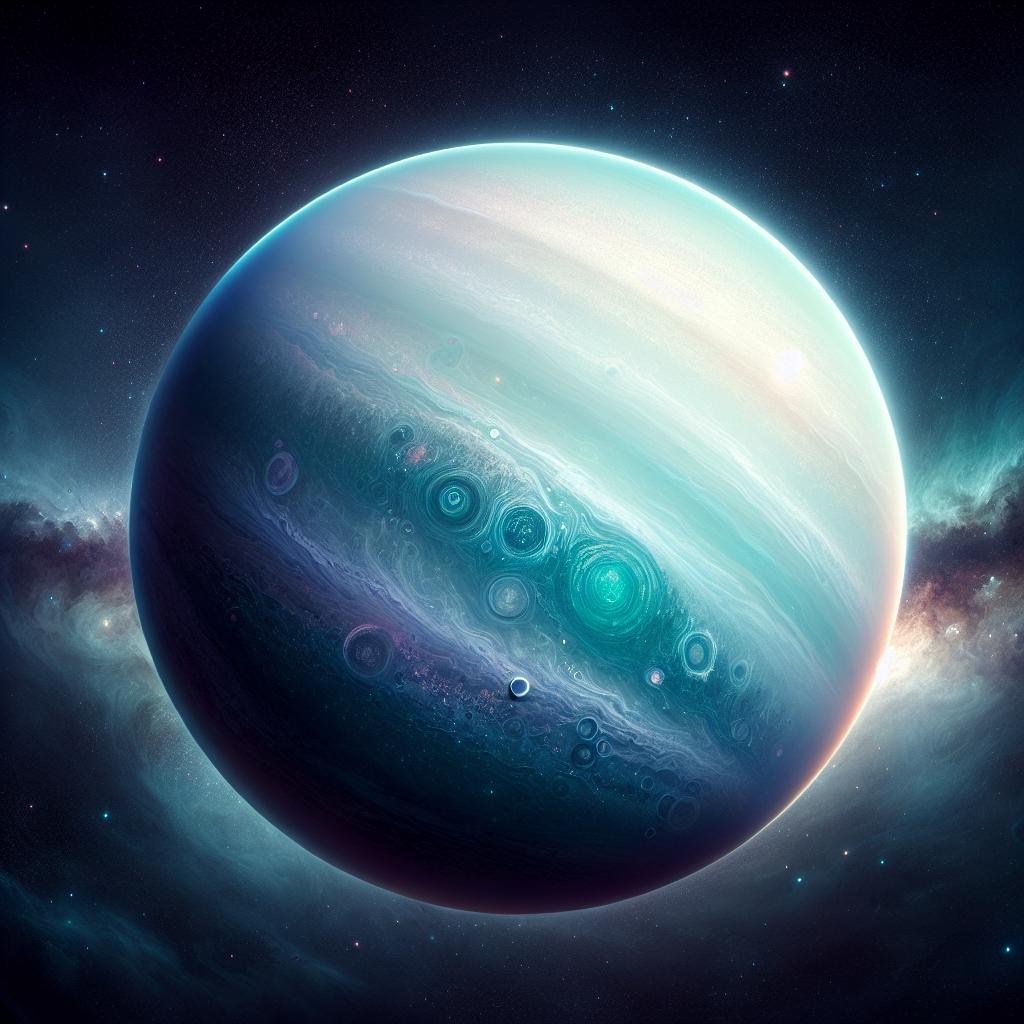
Unveiling the Divine Mystery of Uranus: A Christian Perspective
Published: 28 July 2024
Uranus: Uncovering the Wonders of God's Creation
Uranus, the seventh planet from the Sun in our solar system, is a fascinating celestial body that challenges conventional theories of planet formation. With its bluish-green hue and immense size, Uranus stands out among its planetary counterparts. In this article, we will explore the unique characteristics of Uranus and its moons from a conservative, biblical perspective. By examining the scientific evidence through the lens of God's Word, we can appreciate the wonders of His creation and gain a deeper understanding of our place in the universe.
Key Questions About Uranus
1. What makes Uranus different from other planets?
Uranus is distinctive in several ways. It is approximately 64 times the size of Earth, making it one of the largest planets in our solar system. Additionally, Uranus has a peculiar rotational axis that is tilted at 98 degrees to the ecliptic plane, causing it to roll along on its side as it orbits the Sun. This unique orientation sets Uranus apart from other planets, defying conventional theories of planet formation.
2. How did Uranus acquire its unusual rotational axis?
According to evolutionary theories, Uranus's current rotational axis is believed to be the result of a collision with another planet-sized object. However, this explanation raises several questions. Firstly, Uranus's nearly circular orbit contradicts what would be expected after such a catastrophic collision. Additionally, the moons orbiting Uranus pose a challenge to this theory. If the impact occurred as proposed, these moons would have been scattered or disrupted, rather than moving into stable orbits perpendicular to Uranus's equator.
3. What do we know about Uranus's moons?
Uranus has a total of 21 known moons, each offering unique insights into its formation and history. The Voyager 2 spacecraft provided valuable information about these moons during its flyby in 1986. Interestingly, the smallest moon, Miranda, defied expectations by displaying dramatic terrain and intricate faulting. This unexpected complexity raises questions about the moon's formation and challenges naturalistic explanations.
4. How does Uranus's lack of energy radiation differ from other gas giants?
Among the four gas giants in our solar system, Uranus stands out for its failure to generate excess energy. While Jupiter, Saturn, and Neptune radiate more heat into space than they receive from the Sun, Uranus does not exhibit this behavior. This discrepancy raises questions about the consistency of naturalistic processes in planet formation and suggests that there may be unique factors at play in Uranus's creation.
5. What can we learn from Uranus's magnetic field?
Uranus's magnetic field further perplexes scientists and challenges evolutionary theories. Its magnetic axis is tilted approximately 60 degrees with respect to its rotational axis, which defies predictions based on conventional dynamo models. Furthermore, the strength of Uranus's magnetic field aligns with predictions made by creationist physicist Dr. Russell Humphreys, highlighting the accuracy of biblical assumptions in understanding the natural world.
6. How do evolutionists address the challenges posed by Uranus?
To reconcile the anomalies surrounding Uranus, evolutionists propose complex scenarios involving multiple collisions and subsequent reassemblies of its moons. However, these explanations lack plausibility and fail to account for the survival of certain moon features and the limited amount of debris produced by these collisions. Moreover, invoking one-off planetary catastrophes contradicts the rejection of catastrophic events in other aspects of evolutionary theory.
7. What does Uranus teach us about God's creation?
The mysteries surrounding Uranus highlight the limitations of human knowledge and scientific understanding. As Christians, we can view these enigmas as a testament to God's creativity and sovereignty over the universe. Rather than clinging to naturalistic explanations that are often speculative, we can embrace the wonder and awe of God's creation, knowing that His ways are higher than our own.
8. How does learning about Uranus impact our Christian faith?
Exploring the wonders of Uranus deepens our appreciation for God's power and wisdom. It reminds us of our place as finite beings in a vast and intricate cosmos designed by the Creator. As we encounter scientific mysteries, we can rely on the unchanging truth of God's Word to guide our understanding and interpretation of the world around us. Ultimately, studying Uranus should inspire us to worship God, the Master Architect of the universe. Uranus, with its captivating characteristics and enigmatic nature, presents a challenge to evolutionary theories of planet formation. By examining this celestial body from a conservative, biblical perspective, we gain a deeper understanding of God's creation and His handiwork in shaping the universe. As Christians, we can marvel at the intricacies of Uranus and other celestial bodies, recognizing them as testaments to the glory and wisdom of our Creator. Let us continue to explore the wonders of God's creation with humility and reverence, always seeking to align our understanding with His revealed truth in Scripture.
